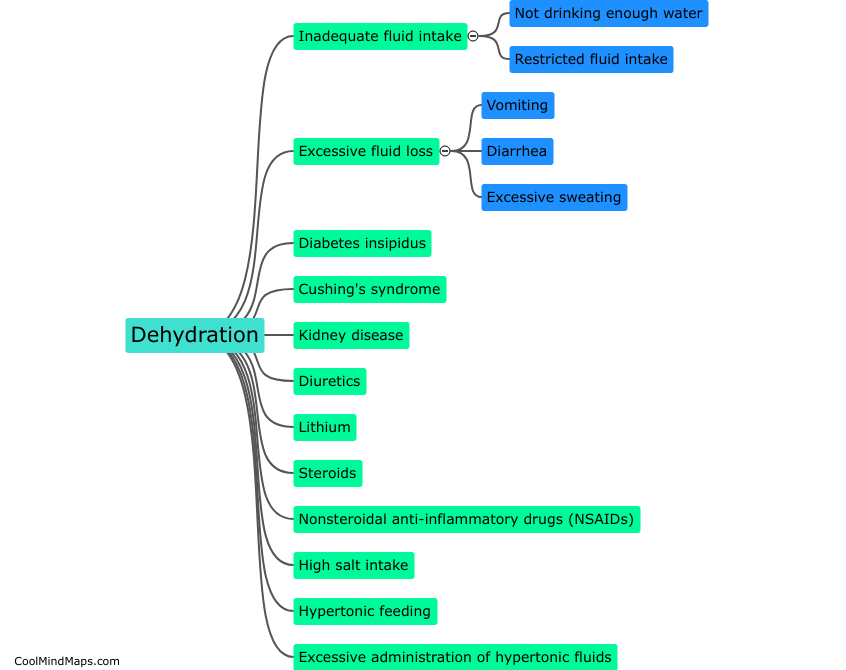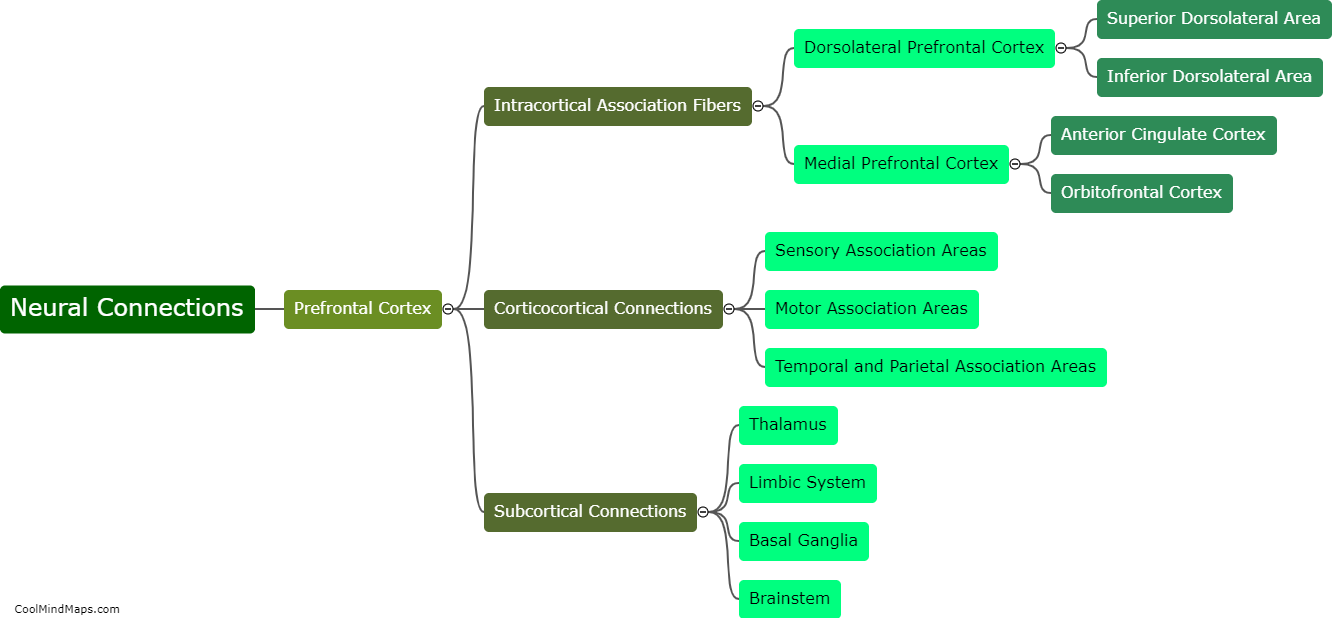What are the causes of hypernatremia?
Hypernatremia, a condition characterized by a higher than normal concentration of sodium in the blood, can be caused by various factors. The most common cause is inadequate fluid intake or dehydration, where the body loses more water than sodium. Additionally, excessive sweating, high fever, and severe burns can contribute to this condition. Certain medical conditions, such as diabetes insipidus, kidney diseases, and hormonal imbalances, can also disrupt the balance of sodium and water in the body and lead to hypernatremia. Medications like diuretics and certain antidepressants can disrupt the body's fluid balance as well. It is crucial to identify and treat the underlying cause of hypernatremia to restore the proper electrolyte balance and prevent potential complications.

This mind map was published on 24 October 2023 and has been viewed 124 times.











